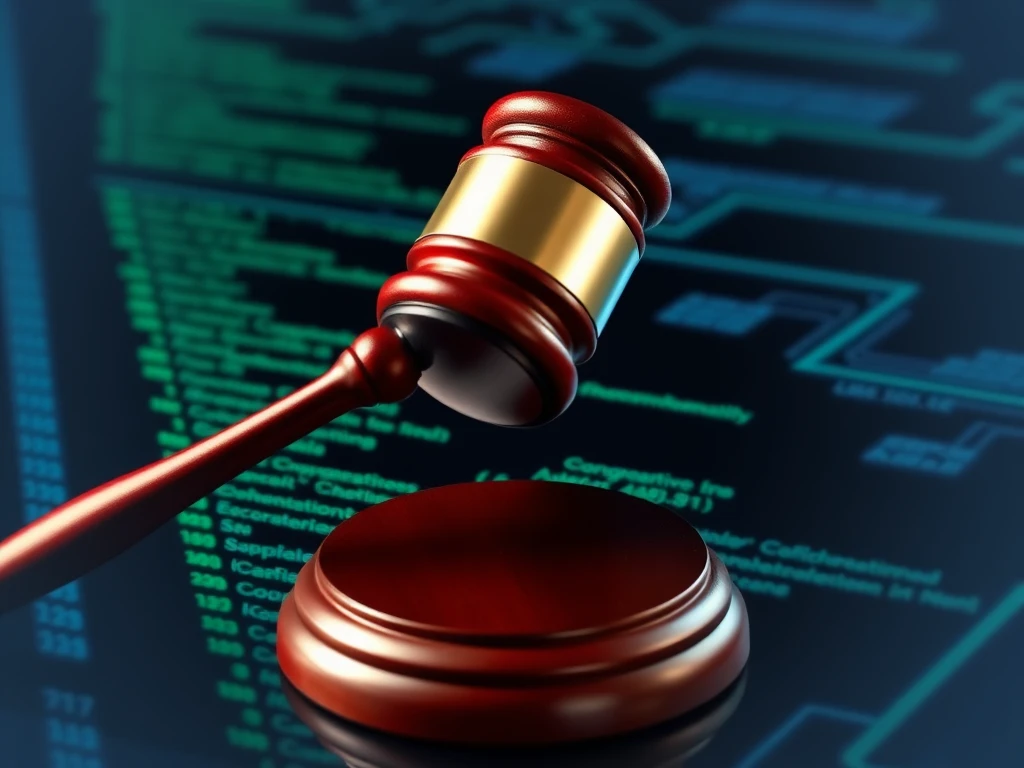Avraham Eisenberg: Mango Markets Exploiter Faces Shocking Sentence on Child Porn Charges

The legal saga surrounding Avraham Eisenberg, known for his involvement in the Mango Markets exploit, has taken an unexpected turn. While the crypto community awaited sentencing for the multi-million dollar decentralized finance (DeFi) manipulation, Eisenberg received a significant prison sentence on unrelated child pornography charges. This development highlights the complex and often surprising paths legal proceedings can take, even for figures prominent in the crypto space.
Avraham Eisenberg’s Sentencing Details Emerge
On May 1, 2024, Avraham Eisenberg was sentenced to 52 months (over four years) in prison. This sentencing occurred in the U.S. District Court for the Southern District of New York and pertained solely to charges related to child pornography. The case was filed in April 2024, following his 2023 indictment concerning the Mango Markets exploit.
Key points regarding this sentencing:
- The 52-month sentence is specifically for the child pornography charges.
- This sentencing precedes the resolution of his criminal case linked to the 2022 Mango Markets incident.
- Eisenberg had previously pleaded guilty to the child pornography charge, with sentencing initially expected in July 2024.
- While there was a suggestion that the sentencing for both cases might be consolidated, the fraud sentencing for the Mango Markets exploit remains pending as of the May 1 date.
The Context of the Mango Markets Exploit and Crypto Crime Crackdown
Avraham Eisenberg gained notoriety in October 2022 for his actions against Mango Markets, a decentralized exchange. The incident involved manipulating the price oracle of the exchange’s native token, MNGO, allowing Eisenberg to borrow heavily against inflated collateral and drain approximately $100 million in user funds. Following the exploit, the MNGO token price plummeted, and the exchange temporarily suspended operations.
Eisenberg publicly defended his actions, terming them a “highly profitable trading strategy” and “legal open-market actions.” He claimed to have negotiated a settlement, returning some funds after the exchange’s insurance fund proved insufficient.
However, U.S. federal authorities viewed the actions differently. In December 2022, Eisenberg was arrested in Puerto Rico. He was subsequently charged with commodities fraud and commodities manipulation. In April 2024, a jury found him guilty of wire fraud, commodities fraud, and commodities manipulation related to the Mango Markets incident.
This case, alongside others, underscores the increasing efforts by law enforcement to pursue and apprehend individuals involved in crypto crime. The prosecution of a high-profile crypto hacker like Eisenberg signals a growing probability of accountability for those who exploit vulnerabilities in the digital asset space, regardless of their claims about the legality of their methods.
Following his fraud conviction, Eisenberg’s defense team filed a motion for acquittal in September 2024, arguing that the exploit was a legal trading strategy rather than a cybercrime. Prosecutors strongly opposed this motion, citing substantial evidence supporting the jury’s guilty verdict.
What This Means for Crypto and Justice
The sentencing of Avraham Eisenberg on child pornography charges, while separate from the Mango Markets exploit case, adds a layer of complexity to his legal situation. It also serves as a stark reminder that individuals involved in the crypto space are subject to the full scope of the law, encompassing both financial crimes and other serious offenses. The pending sentencing for the fraud conviction will be a significant event for the crypto community, potentially setting a precedent for how sophisticated DeFi manipulations are treated under existing laws. The ongoing legal battles faced by this prominent crypto hacker highlight the evolving landscape where digital actions intersect with traditional legal frameworks.
Summary
Avraham Eisenberg, known for the $100 million Mango Markets exploit, has been sentenced to 52 months in prison on unrelated child pornography charges. This sentencing occurred before the final judgment in his fraud case concerning the crypto exploit, for which he was found guilty in April 2024. The case continues to be closely watched as it reflects the increasing efforts to prosecute crypto crime and hold individuals accountable for actions within the decentralized finance space.







